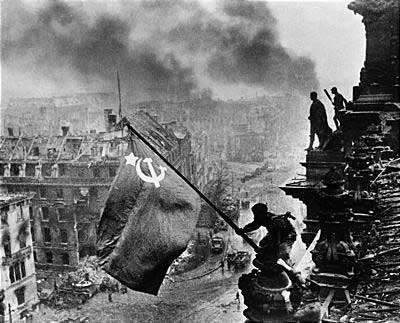
presents:
Soviet Writers at War!
IN BERLIN'S NEIGHBORHOODS
by
Boris Gorbatov
(April 1945)
The author, in Berlin with the conquering Red Army, gloats and taunts Berliners.


presents:
Soviet Writers at War!
IN BERLIN'S NEIGHBORHOODS
by
Boris Gorbatov
(April 1945)
The author, in Berlin with the conquering Red Army, gloats and taunts Berliners.
|
|
|
|
|
Soviet Writers at War! |
